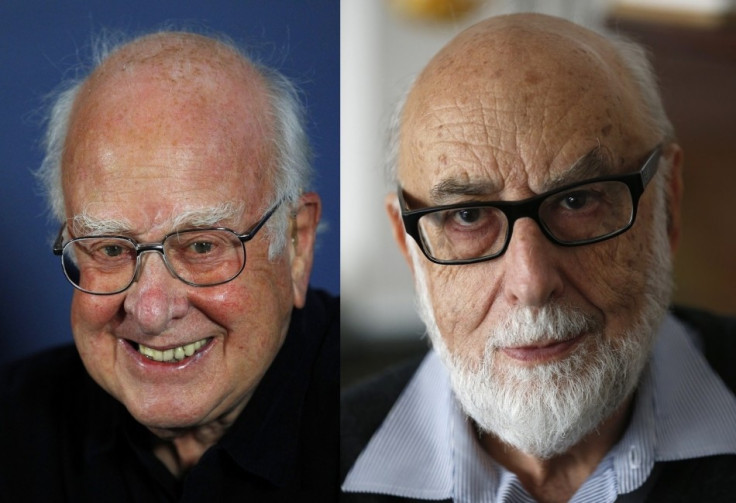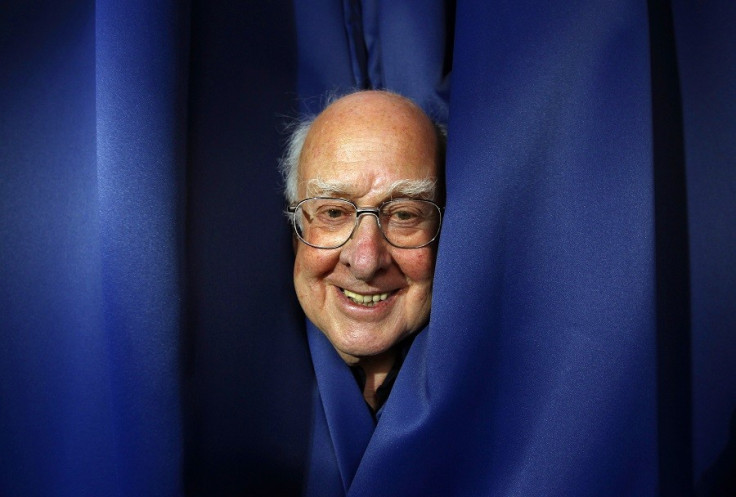Peter W Higgs and François Englert Win Nobel Prize for Physics for 'God Particle'

Peter W Higgs and François Englert have been awarded the 2013 Nobel Prize for Physics for the discovery of the 'God particle'.
The scientists were jointly awarded the prize for the theory of how particles acquire mass.
They first proposed the theory independently of one another in 1964. Their ideas were then confirmed with the discovery of the Higgs particle at the CERN Large Hadron Collider in Geneva, Switzerland.
A statement said the award was for: "The theoretical discovery of a mechanism that contributes to our understanding of the origin of mass of subatomic particles, and which recently was confirmed through the discovery of the predicted fundamental particle, by Atlas and CMS experiments at CERN's Large Hadron Collider."
The theory describes how the world is constricted. Higgs and Englert said everything, from people to flowers to stars, consist of just a few building blocks called matter particles - known as the Standard Model.

"These particles are governed by forces mediated by force particles that make sure everything works as it should," a statement from The Royal Swedish Academy of Science, which presents the Nobel Prize said.
"The entire Standard Model also rests on the existence of a special kind of particle: the Higgs particle. This particle originates from an invisible field that fills up all space. Even when the universe seems empty this field is there. Without it, we would not exist, because it is from contact with the field that particles acquire mass."
The Higgs particle was discovered in July last year. Around 3,000 scientists helped extract the particle from billions of particle collisions in the LHC.

Kings College London, where Higgs studied, celebrated the award and congratulated the former student on the acheivment.
Professor Sir Richard Trainor, Principal of King's, said: "This is wonderful news and we send our warmest congratulations to Professor Higgs. King's is extremely proud and honoured that our alumnus has been awarded the world's greatest scientific prize, and we look forward to being able to congratulate him in person in the near future."
Professor John Ellis added: "In 1964 Peter Higgs was among the theoretical physicists who discovered a way to give masses to elementary particles. This is now the basis for the Standard Model that describes immensely successfully all the visible matter in the Universe.
"We are proud that Peter Higgs was a student in the King's Physics Department, and that his links with King's continue."
© Copyright IBTimes 2025. All rights reserved.






















